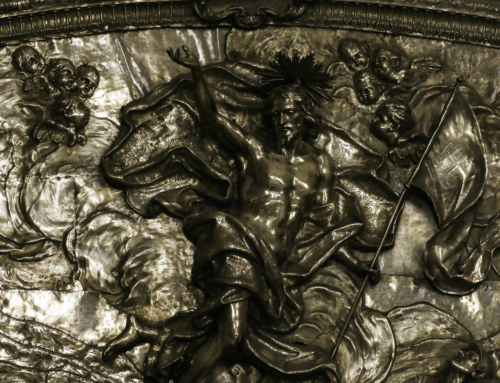How one mentally approaches a difficult task can often determine eventual success or failure. For example, one of my brothers recently had to finish a long term paper over just a couple of days. He could not see himself successfully writing a sixteen-page paper in one weekend. But then he realized that he could write a two-page, single-spaced paper without too much difficulty, and his sixteen-page paper was really only eight pages single-spaced; so he really only had to write four two-page papers. Of course, in actuality the task before him was the same as it has always been, but, mentally, he had found a way to surmount what had seemed an impossible challenge.
Many of the more serious challenges in life can be handled in a similar manner. Marcus Luttrell, in his book Lone Survivor, recounts how he successfully completed the most grueling military training in the world—the selection program for the Navy SEALs. Although only the strongest and toughest warriors even try out for the SEALs, just a few dozen of the more than 150 recruits in Luttrell’s class actually made the cut. The instructors weed out all but the indestructible, and the physical conditioning is torturous: endless running in the sand, brutal calisthenics, jogging while carrying a huge tree trunk, and so on—all of this with little to no sleep, for weeks on end, with hardly even a break. And yet even this description does little justice to the almost unbelievable physical and mental challenges Luttrell describes. The worst is “hell week”: seven solid days of extreme physical exertion, under gun and artillery fire. Only the ones who would rather die than give up pass the test.
How could Luttrell, or anyone, survive? Of course, physical fitness and mental toughness are a necessity, but there’s more. One’s mental approach to the training is key. At the beginning of hell week, says Luttrell, it was easy to fall into the trap of thinking of all the pain he had to endure: the running, the swimming, the lack of sleep, the relentless pace of one task after another without any release. The thought of all this could have easily broken him. But if he took each task by itself, it was more bearable: run over there, swim over here, do push-ups, carry that trunk. He had been doing these things endlessly, for months, and he had been doing them one at a time, sequentially. It was his mind that piled them all together and made of them a weight too heavy to bear. As with the sixteen-page paper, the task was too much if taken all at once, but taken one part one at a time, it was manageable. Luttrell completed his SEAL training using the same mental technique that my Dominican brother used to finish his term paper.
The same applies in the spiritual life. It’s easy to think of the totality of future difficulties one may face, of all the probable and not-so-probable challenges one must overcome, of all the crosses one may have to bear. But to think of these all at once is to try to bear the trials of a whole lifetime in one moment, and this is not possible. But one can surmount them from moment to moment. Christ tells us this directly: “Take no thought for the morrow: for the morrow shall take thought for the things of itself. Sufficient unto the day is the evil thereof” (Matthew 6:34). As Luttrell focused on each task individually and did not let future challenges bother him, so we must do in the spiritual life.
Luttrell trained to be an elite warrior, a Navy SEAL, and we, too, are training to be elite warriors—spiritual warriors. But there is a big difference between the two. While a Navy SEAL must rely on his own strength to succeed, the spiritual warrior must rely on God’s strength. A natural athlete uses his own skill to win a race, but the Christian uses God’s grace. Indeed, if we try to use our own strength in spiritual combat, we will lose:
Some boast of chariots, and some of horses;
but we boast of the name of the Lord our God.
They will collapse and fall;
but we shall rise and stand upright (Psalm 20:7–8).
The victory can be ours, but only through God’s grace. While Luttrell stayed focused on the moment in order to prevent his mind from sapping his bodily strength, the Christian stays focused on the moment because he trusts in Jesus Christ. He hopes in God’s mercy and faithfulness, knowing that he need not worry about future challenges because God is at his side. Thus, the military warrior focuses on the present in order to foster the natural virtue of fortitude, while the spiritual warrior does so to foster the supernatural virtue of hope. Our hope is firm because Christ has already won our victory, and so we need only to focus on Him and His will in order to bear the trials of today. There is no need to fear what the future may bring, for “sufficient unto the day is the evil thereof.”
✠
Image: Navy SEAL recruits carrying a six-hundred-pound log during “hell week”







